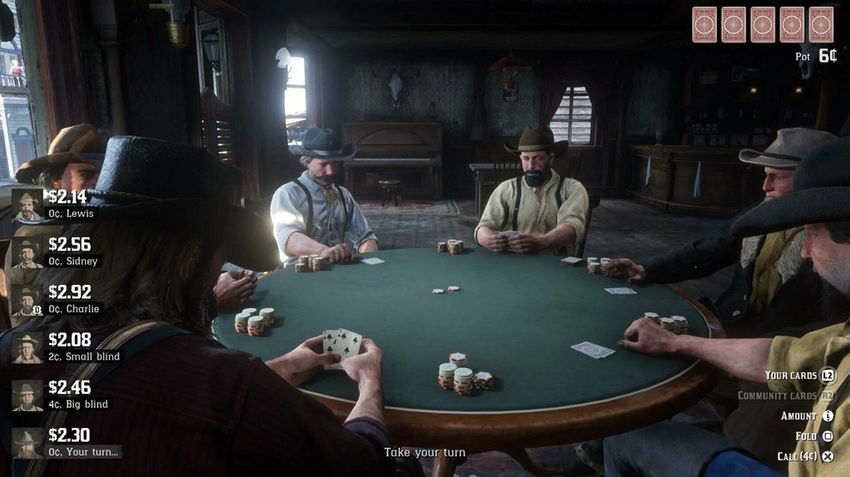In Red Dead Redemption 2, Rockstar Games doesn’t just deliver a sweeping narrative about outlaws on the run — it immerses players in a meticulously crafted world where every detail, from horse grooming to camp chores, feels authentic. Among these details lies one of the game’s most compelling side activities: poker.
More than just a pastime, poker in RDR2 serves as a window into the social fabric of the American frontier — a world where risk, reputation, and deception were part of daily survival. At the heart of this underground gambling culture is Red Harlow, a recurring character whose presence turns casual card games into high-stakes psychological duels. But beyond its role in storytelling, the poker mechanic reflects deeper truths about real-life gambling behavior and the allure that keeps players coming back — both in-game and in the digital world of modern igaming affiliate platforms.
The Role of Poker in the World of RDR2
Poker wasn’t invented in the Wild West, but it flourished there. In Red Dead Redemption 2, set in 1899, poker tables are found in saloons, campsites, and even abandoned shacks — anywhere men gather to drink, gamble, and test their nerve. These games aren't just background noise; they're fully interactive, with AI opponents who react to your bets, bluffs, and tells.
Red Harlow, a grizzled gambler with a penchant for high stakes, appears across multiple chapters, challenging Arthur Morgan (and later John Marston) to increasingly intense matches. Unlike other NPCs, Harlow remembers past encounters, taunting you if you've won before or playing more aggressively if he's seeking revenge. This continuity adds a layer of personal rivalry rarely seen in video game minigames.
The rules follow standard five-card draw poker, complete with betting rounds, discards, and showdowns. Players must manage their in-game funds carefully — losing too much can leave them unable to afford weapons or supplies. Winning, on the other hand, offers a satisfying rush and a practical reward, reinforcing the risk-reward cycle that defines gambling.
Why Poker Keeps Players Engaged
So why do so many players return to the poker table, even when it's not required by the main story?
First, there’s the psychological thrill of bluffing. Like real poker, success isn’t just about having the best hand — it’s about reading opponents, controlling emotions, and knowing when to fold. The game subtly encourages this by showing character animations — a nervous twitch, a confident smirk — that hint at hand strength.
Second, poker provides a break from the main narrative while still feeling meaningful. After hours of gunfights and moral choices, sitting down for a quiet game offers a different kind of tension — one rooted in strategy rather than action.
Third, the stakes feel real. Because money earned through poker can be used to buy upgrades, outfits, and food, the outcomes have tangible consequences. This mirrors real-world gambling psychology, where the line between entertainment and financial impact becomes blurred.
According to research by the American Psychological Association, games that simulate real-world risks activate similar neural pathways as actual gambling, particularly in the brain’s reward system. This helps explain why activities like poker in RDR2 can be so engaging — they tap into deep-seated cognitive patterns related to chance and reward.
Reflections of Modern Gambling Culture
While Red Dead Redemption 2 is set over a century ago, its portrayal of poker resonates with today’s digital gambling landscape. Just as Harlow moves from town to town, finding new marks for his next game, modern igaming affiliate networks connect players with online casinos, sportsbooks, and skill-based platforms across the globe.
These digital ecosystems rely on the same principles:
- Trust and reputation: Players seek out fair games and reliable operators.
- Risk and reward: Bonuses, jackpots, and tournaments keep users engaged.
- Social dynamics: Multiplayer features and live dealers recreate the human element missing from solo play.
Platforms like RevenueLab analyze top-rated online casinos using criteria similar to what a player might use in RDR2: licensing, payout speed, game fairness, and user experience. Just as Arthur would hesitate to sit at a rigged table in Blackwater, savvy online gamblers research their options before placing a bet.
Moreover, the narrative around poker in RDR2 warns against obsession. Several characters suffer due to gambling debts or compulsive play — a theme that echoes modern concerns about problem gambling. Rockstar doesn’t glorify the activity; instead, it presents it as a double-edged sword: fun in moderation, destructive in excess.
A Timeless Game, Reimagined
Ultimately, poker in Red Dead Redemption 2 is more than a side activity — it’s a cultural artifact, a gameplay loop, and a psychological experiment all in one. It captures the essence of the Wild West, where fortunes could be made or lost in a single hand, and where confidence often mattered more than cards.
For players, it offers a rare blend of relaxation and tension, strategy and luck. And for observers of digital culture, it serves as a bridge between historical pastimes and contemporary trends in online gaming.
Whether you’re bluffing Red Harlow out of $50 in 1899 or navigating the complex world of online platforms today, the core appeal remains unchanged: the thrill of the gamble, the power of the pause before you call — and the hope that this time, you’ll come out ahead.









— Kommentare 0
, Reaktionen 1
Sei der erste der kommentiert